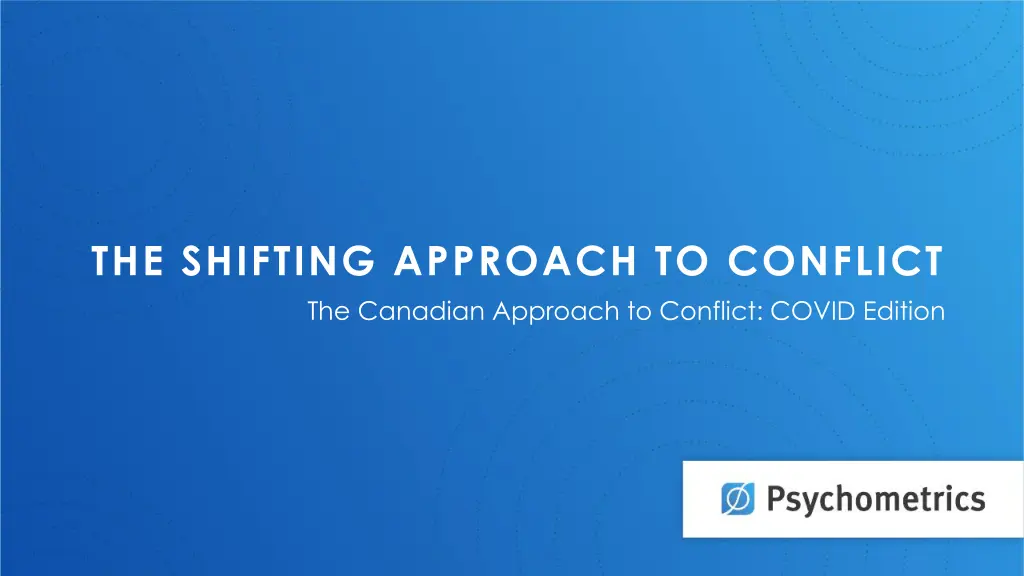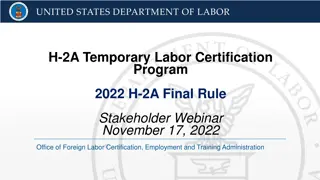
Shifting Canadian Approach to Conflict during COVID
Explore the shifting approach to conflict in Canada during COVID-19, including conflict styles, favored conflict styles, and considerations for managing conflicts effectively. Learn about competing, collaborating, compromising, assertiveness, avoiding, and accommodating in conflict resolution.
Download Presentation

Please find below an Image/Link to download the presentation.
The content on the website is provided AS IS for your information and personal use only. It may not be sold, licensed, or shared on other websites without obtaining consent from the author. If you encounter any issues during the download, it is possible that the publisher has removed the file from their server.
You are allowed to download the files provided on this website for personal or commercial use, subject to the condition that they are used lawfully. All files are the property of their respective owners.
The content on the website is provided AS IS for your information and personal use only. It may not be sold, licensed, or shared on other websites without obtaining consent from the author.
E N D
Presentation Transcript
THE SHIFTING APPROACH TO CONFLICT The Canadian Approach to Conflict: COVID Edition
Planning discussions 8% Dealing with unexpected issues 28% Decision-making 18% Completing day-to-day tasks 18% Implementing changes 28% WHEN DOES CONFLICT OCCUR?
Competing Collaborating Compromising Assertiveness Avoiding Accommodating Cooperativeness Satisfaction you intend for yourself Satisfaction you intend for other WHAT DOES CONFLICT LOOK LIKE?
AVOIDING COMPETING ACCOMMODATING COLLABORATING COMPROMISING OBSERVED CONFLICT STYLES
Collaborating 18% Avoiding 22% Accommodating 11% Competing 10% Compromising 39% FAVOURED CONFLICT STYLE (2014 TO EARLY 2020, N = 48,703)
Collaborating 14% Collaborating 18% Avoiding 22% Accommodating 16% Avoiding 25% Accommodating 11% Competing 8% Competing 10% Compromising 39% Compromising 37% FAVOURED CONFLICT STYLE (PANDEMIC DATA, N = 1833)
Competing Collaborating Compromising Assertiveness Avoiding Accommodating Cooperativeness THE SHIFT IN CONFLICT STYLES
Task Considerations Context Considerations Relationship Considerations 1. How complex is the issue? 1. Does the environment allow 1. Do we trust each other Simple (unidimensional) or us to share our needs and enough to be open about complex (multi-dimensional)? concerns? our needs and concerns? 2. How important is the topic to 2. How much time do we have 2. Do we communicate me? to resolve this conflict? effectively with each other? 3. How important is the topic to 3. How important is our the other side? relationship? WHEN IN DOUBT
www.psychometrics.com @Psychometrics-Canada jdeonarine@psychometrics.com Justin Deonarine Organizational Psychologist @PsychometricsCA @PsychometricsCanada CONNECTING WITH US






















